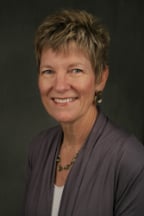You have /5 articles left.
Sign up for a free account or log in.
A sit-in at Seattle University took an unusual turn last week when a student made an allegation to explain why the protest movement was insisting on the firing of a dean: a black student charged that the dean had used the slur "nigger" several times during a discussion they had last year.
 The charge has appeared in several accounts of a tense meeting between the students and the Reverend Stephen Sundborg, president of the university, who urged the students to abandon their demand for the resignation of Jodi Kelly, dean of the university's Matteo Ricci College, which offers degrees in the humanities. Several accounts state that the word was used by Kelly not to refer to the student or any individual, but to describe the book Nigger, the autobiography of Dick Gregory, the civil rights activist and biographer. On Gregory's own website, he describes what he told his mother about the title of the book: that whenever she heard the name of his work, "you'll know they're advertising my book."
The charge has appeared in several accounts of a tense meeting between the students and the Reverend Stephen Sundborg, president of the university, who urged the students to abandon their demand for the resignation of Jodi Kelly, dean of the university's Matteo Ricci College, which offers degrees in the humanities. Several accounts state that the word was used by Kelly not to refer to the student or any individual, but to describe the book Nigger, the autobiography of Dick Gregory, the civil rights activist and biographer. On Gregory's own website, he describes what he told his mother about the title of the book: that whenever she heard the name of his work, "you'll know they're advertising my book."
Kelly has become a major focus on the protest, with students putting up signs and creating a Twitter feed with the hashtag #DearDeanKelly (which has tweets both in support of the movement and highly critical of it).
The Stranger, a Seattle newspaper, emailed Kelly, who wasn't at the meeting where the student made the accusation, and she responded via email that she remembered discussing the Gregory autobiography with a student last year.
While Kelly declined an interview with Inside Higher Ed, she forwarded those emails. "I remember speaking with a student about Dick Gregory’s book by that title …. I am not in the habit of repeating titles, and certainly not that one, but I did refer her to that book," said a first email from Kelly.
The Stranger reporter sent a follow-up email asking if Kelly had used the title out loud, and she responded: "The student asked for more diversified reading. I complied and pulled the book from my shelf. The title, as you know, could startle, so I relayed the story of Dick Gregory explaining to his maternal ancestors why he titled it that way …. I am not in the habit of ever using that word …. I believe it demeans us all."
The spokesman for the university said that he had nothing to add.
The student who recounted the conversation told the crowd that Kelly told her that black people could reclaim the slur, as Gregory did. The student, who has not been identified by name, said that after the conversation with the dean, she did not go to class. "That word still hurts …. It is not her place to tell me not to be offended. This woman needs to be removed. I'm worried about the students that come after me," the student said. In an email, Kelly said that she offered the book after hearing the student talk about how ignorant and offensive comments from peers were hurtful.
The curriculum has been a major source of frustration to those holding the sit-in. The college in question is focused on the humanities, and features many courses focused on the classics of Western civilization, while also offering education and leadership instruction for those seeking to apply humanities study to education and leadership positions.
A petition outlining the student demands says the curriculum needs to change so that it "decentralizes whiteness and has a critical focus on the evolution of systems of oppression such as racism, capitalism, colonialism, etc., highlighting the art, histories, theologies, political philosophies and socio-cultural transformation of Western and non-Western societies," and that more courses be taught by those "from marginalized backgrounds, especially professors of color and queer professors."
Further, the petition says that the humanities college's new curriculum should be one that "radically reinterprets what it means to educate teachers and leaders for a just and humane world by centering dialogue about racism, gentrification, sexism, colonialism, imperialism, global white supremacy and other ethical questions about systems of power, setting a standard for students before doing service, learning or studying in other communities or countries."
The university has issued two written responses to the protests since the sit-in-started, both of them expressing willingness to consider changes in the curriculum.
The statements said that the Matteo Ricci College would "conduct a comprehensive review" of the curriculum with a deadline of this December for a report. The committee would be made up of faculty members, students, alumni and a consultant, the statements said. The statements also pledged that an outside consultant would review culture at the college.
On Saturday, Father Sundborg sent an email to the campus in which he said that he had been moved by the students' expressions about being in a minority at Seattle. "These are serious issues and the way to address them is to work together in a spirit of empathy, solidarity, openness and cooperation. It is the foundation upon which we will be able to engage in thoughtful and constructive dialogue, make progress and arrive at good solutions," he said.
He also sent a separate email to everyone at the university about "several deeply appalling incidents that have come to our attention over the past 24 hours. Each incident involved phone calls to the university from individuals who directed vitriolic hate speech" toward the students who are protesting. "Let me be clear: we have zero tolerance at Seattle University for hate speech and such harassment and intimidation. There simply is no excuse or place for such behavior," he said.
As the debate has grown in the days since the sit-in started, some have defended the humanities program and its curriculum. One of the blogs hosted by The Stranger published an analysis by a graduate of the program, Maria Martin, who described herself as a minority woman who works with disadvantaged students. Martin wrote that she would like to see more minority students and faculty members at the university, but that recruitment won't really take off until public schools that serve low-income and minority students are improved.
Further, she wrote, the curriculum is valuable and not a secret to those enrolling.
"The reality is that European classic literature is a predominately white field of authors. Europe, in general, especially when talking about the classics, is predominately white males," Martin wrote. "Yes, this might well be ‘stuff that old racist and sexist white guys wrote down’ and if it’s not a curriculum you like, perhaps you should consider attending a university with a wider range of curriculum …. The ‘Eurocentric curriculum’ is an inherent part of the [college] and humanities curriculum; it has always been as such and quite frankly, I very much appreciate reading about ancient Greco-Roman cultures. If a vast majority of students have a problem with reading the classical literature of Plato, Socrates and others, perhaps they should consider a different major altogether. Personally, I found the curriculum vital to my understanding of most of the other classes in which I enrolled at Seattle University."








